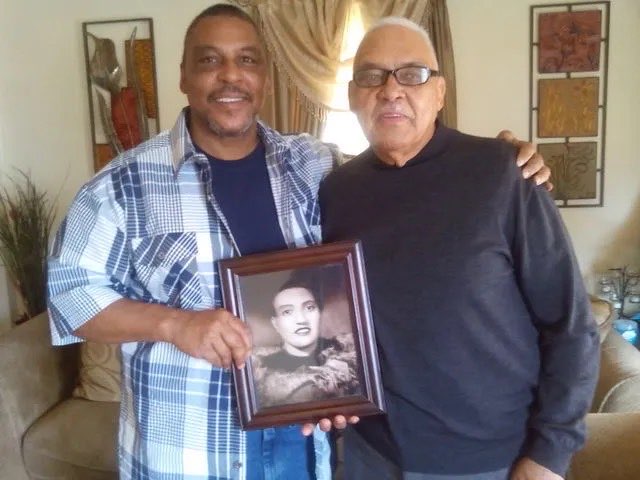By Aria Brent
AFRO Staff Writer
On Sept. 13 people gathered from far and wide at Faith Christian Fellowship to celebrate the life and legacy of Lawrence Lacks Sr. The patriarch of the Lacks family died from liver disease complications at the Baltimore VA Medical Center on Aug. 26.
Lacks was 88 years old and the last living child of Henrietta Lacks, a Black woman whose cervical cancer cells were taken without her permission or knowledge in 1951. Known as the “HeLa” cells, they went on to be used in a series of medical experiments and breakthroughs, including research to develop vaccines for polio, COVID-19 and in vitro fertilization.
“Lawrence’s life without a doubt is a testament to an enduring spirit of resilience, humility, love and respect,” said U.S. Rep. Kweisi Mfume, as he recalled Lacks’ life. “Lawrence, you went on to serve your country, distinguish yourself, be a small business owner, break barriers at Amtrak and never let go of the memories that so many of us shared in Turner Station. And you never let go of your commitment to make sure that your mother’s legacy would be honored.”

Lacks’ death came only three weeks after the family’s first legal settlement with the Massachusetts-based biotech company Thermo Fisher Scientific for profiting off the use of his mother’s cells.
The Lacks family moved to Maryland from Clover, Va., when Lawrence was just a young boy. They lived in Turner Station, one of the oldest Black communities in the Baltimore County area. Once his mother became ill and even before her death he was responsible for taking care of his younger siblings, but that was no task for him. He was remembered as a selfless, reliable and kind-hearted person.
“He was a stately man of great character and presence,” said the Rev. Dr. Franklin Lance, senior at Mt. Lebanon Baptist Church. “Lawrence made his days count. He made his voice and advocacy count. He made his patriarchal role count. He made his life count.”
The post Celebrating the life and legacy of Lawrence Lacks Sr., son of Henrietta Lacks appeared first on AFRO American Newspapers .










